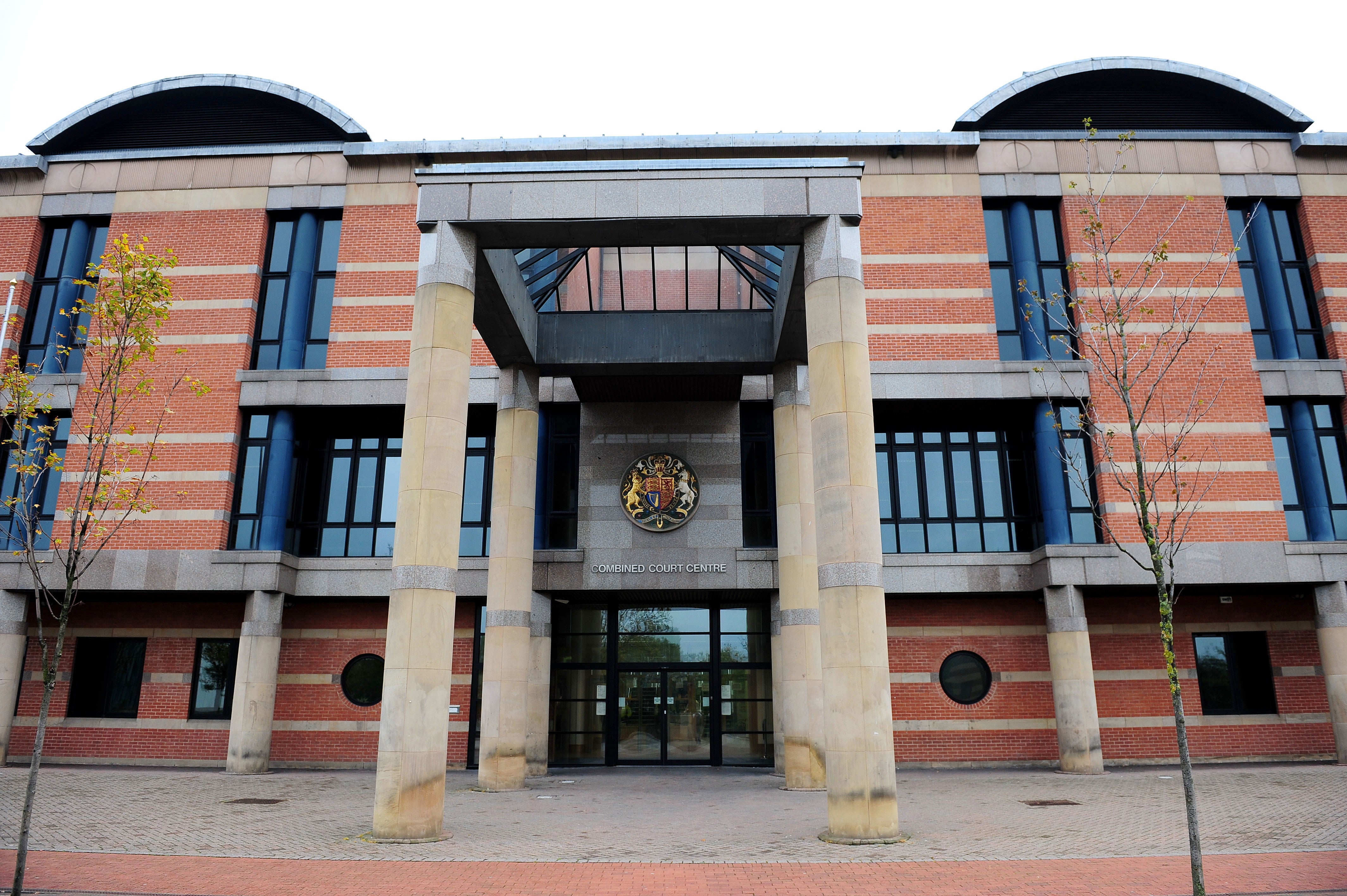Teenager accused of plotting far-right terror attack ‘can’t remember’ why he was looking at bombs and weapons
Luke Skelton allegedly carried out ‘hostile reconnaissance’ of police stations, reports Lizzie Dearden

A teenager accused of planning far-right terror attacks has said he did not want to hurt anyone and “can’t remember” why he was looking at weapons and explosives online.
Luke Skelton, now 18, is accused of carrying out “hostile reconnaissance” of police stations in Newcastle and writing a manifesto and “final note” to spread his message after the attack.
He denies preparing acts of terrorism in the year to October, and told Teesside Crown Court notes where he wrote that he wanted to “fight” to give his defendants a “homeland” were just “venting” his feelings.
The teenager, who was a 17-year-old student when he allegedly started making the plans, said he “may have” held racist, antisemitic and sexist views but no longer did.
Mr Skelton told the jury that the six months he has spent on remand in HMP Durham had given him “time to think”, adding: “I would disagree with what I used to believe.”
Asked whether he wanted to commit an act of terrorism, cause violence, hurt people or damage property, he replied: “No.”
When questioned why he had looked up information on dynamite, pipe bombs, 3D-printed guns, crossbows and other weapons, he replied: “I can’t remember.”
The defendant said he asked his mother to buy a ceremonial sword for him as a Christmas present but that she refused, and he did not purchase one himself.
Mr Skelton wrote to a contact that he “should have gone through with” something, and should not have listened to a woman who discouraged him, but said he couldn’t not remember what he was going to do.
He admitted writing two manifestos and a “final note”, which prosecutors say he intended for release after his death in a terror attack, but said he “holds no memory” of what he meant by the documents.
Jurors were played a voice recording made by Mr Skelton of a “speech to inspire Europe” but he said he “can’t remember anything of it”.
The defendant called several of his posts and notes “fantasia”, including a wish to fight in France and start a militia in the UK.
Mr Skelton said he could not remember the “context behind” an online post talking about “doing something” to stop “rape gangs” harming white girls.
“A lot of my memory of events pre-arrest has been erased, I really can’t remember anything,” he added.
He admitted downloading videos relating to Adolf Hitler and the US neo-Nazi terrorist group Atomwaffen but said he was not a fascist himself.
The court heard that he was diagnosed with autism as a child and received extra help at school, leaving with four GCSCs, a BTec and two other certificates.
He was reported to the government’s Prevent counter-terrorism scheme during his first year at Gateshead College.
Mr Skelton attended eight sessions with an intervention provider before withdrawing from the programme in May last year.
He told the jury that he did not get on with the man “particularly well” and had no confidence in him, but could not remember why.
Mr Skelton was arrested on 12 June 2021 on suspicion of possessing documents useful to a person preparing an act of terrorism, but released on bail.
The court heard that the following month, police returned his electronic devices and informed him that no further action would be taken.
Jurors were told that he continued researching explosives and suggested online that he could target a drag queen or grooming gang members.
On 2 August, he allegedly wrote: “F*** this f***ng bullshit I wish I had gone through with the attack and not been debating this shite I have done f*** all with my and never will do I should be f***ing dead”.
In his “reactionary British manifesto”, Mr Skelton wrote that he wanted “Britain to become again” and listed policies including restoring the British empire, ensuring “native British” people were at least 93 per cent of the population, outlawing Islam, and abolishing women’s right to vote and gay marriage.
A note saved on his mobile phone on 10 August was described as a “brief overview of plan”, including finishing his final note and manifesto, quitting his job and “building bomb to attack police stations”.
The following month, he researched police stations in Newcastle, taking screenshots of aerial views of three premises - Byker, Etal Lane and Forth Banks.
On 29 September, he carried out what prosecutors called “hostile reconnaissance” by taking photos of Forth Banks police station and nearby CCTV cameras.
Mr Skelton, of Oxclose in Washington, denies preparing acts of terrorism and the trial continues.
